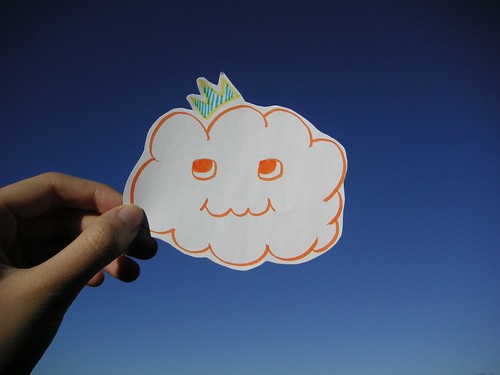Pligg is an open source CMS (Content Management System) that you can download and use for free. Pligg CMS provides social publishing software that encourages visitors to register on your website so that they can submit content and connect with other users. Our software creates websites where stories are created and voted on by members, not website editors. Use Pligg content management system to start your own social publishing community in minutes.
I’ve been using Apple’s .mac service for years, since 2001 as a matter of fact. The recent upgrade from .Mac to MobileMe has garnered a lot of press for the problems, breakdowns and failures of the service meant to “push” data to my iPhone, my Macs and to the service itself, described as a “cloud.”
Luckily I haven’t had much issue with the upgrade/switchover. I will say, however, that I think for a couple of weeks in July some emails I sent took a long time to get where they were going as did some I received. Compared to folks who lost loads of mail, that’s not the end of the world.
Apple is trying – as are other companies – to tie into this idea of cloud computing. I’m fascinated by this – could all of my data someday be stored in the cloud, be it at Apple’s, Amazon’s or some new service? Could I easily access my data from any PC, Mac, phone, tablet, etc at my disposal? And the number one thing on this music lover’s mind” could my entire 5,264 item, 34GB iTunes library live in the cloud and be accessible from anywhere I have a wifi or cellular connection to my phone, home stereo, car stereo, etc?? That’s what Kusek and Leonard were forecasting inThe Future of Music.
For more, don’t miss Robin Hastings’ presentation “Collaborating in the Cloud” at Slideshare http://www.slideshare.net/webgoddess/collaborating-in-the-cloud
So, we’ve reached a time when much of my data could be stored in other places and accessed from anywhere. Will Richardson just posted:
Of course, this raises some eyebrows, and I invariably get questions and comments along the lines of “How do you trust Google to keep your information secure?” or “What if you can’t get on the Web?” These invariably lead to conversations about how mobile devices and Web enabled phones are changing the landscape and how the potential reward of easy collaboration and sharing at this point at least outweigh the risk of losing files.
Between IBM’s recent announcement to build huge data centers to support “cloud computing” for its customers, Kevin Kelly’s recent Ted Talk about the next 5,000 days of the Web, and the continuing discussion on the Fast Forward blog, it’s pretty apparent that we are shifting away from our reliance on one or two devices to hold our information and that our focus is now becoming what devices give us easiest access to that information on the Web.
(Thanks Will, your post reminded me I’ve had this in draft for awhile!)
Don’t miss Will’s post and then click through to check out Kevin Kelly’s talk at http://www.ted.com/index.php/talks/kevin_kelly_on_the_next_5_000_days_of_the_web.html.
What do the next 5,000 days of the internet look like? Kelly says the Internet has already become “one machine” and our devices are windows into it. I wonder how libraries might make the most of this trend?
Some idle thoughts while I sync the iPhone with new music and apps:
Understand converged devices are everywhere. The days of “No Cell Phones” in the library are long gone. Courteous cell use in our libraries is very important but banning cell phones – a user’s window, if you will — should by now have gone the way of the dodo. We’ve said this before: these converged devices are much more than just phones. Encourage use. reach out to users this way.
Allow unfettered access to the cloud. Locked down PCs won’t help users get to their data. This means offering multiple browsers, providing the fastest connections you can, and security measures that do not block access to what users want. Hardware access too: I carry a 160GB portable drive everywhere with all of my stuff on it. I may need to plug it into your library computer someday to sync data. Please let me.
Understand that the cloud may also be a valuable information resource in its own right. how many times have we answered a reference question via Facebook, wikipedia, blog posts, a Flickr picture, etc. These are all viable means to get answers. Tap into user-generated data as a resource. It may become one of our most important mechanisms.
Utilize the cloud to save time and money. Be aware that Google Docs and similar will only get more share of the application market, as Will Richardson illustrates. Maybe offering access to Google docs and instruction on how to use them would be a useful way to save time and money. That’s why I am so interested in universities contracting with Google for apps and email. Maybe only a few computers in your library will need MS Office in the future. Maybe OpenOffice and some online version of the same will allow us a lot more freedom to spend our dollars and time on other improvements.
Understand the importance of personalization. Kelly addresses this toward the end of his talk. People are personalizing their information experiences and spaces. How many years has Amazon welcomed me back with open arms, and a few suggestions for purchase? Libraries should allow them to do the same with our systems and services. Look at some of the recent innovations with OPACs to see where this is headed. Affording personalized connections into the cloud might make the library a gateway to user’s data and put library resources in their view. Blocking access — Facebook? MySpace? — negates this benefit and dampens this possibility.


